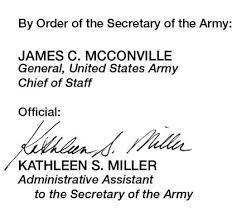[roblox_codes]
The Army is not the only service that is considering changing its email signature policy. The Marine Corps and Air Force haven’t made official announcements regarding pronoun usage, but they’re looking to understand the policy. The Navy isn’t planning to change its policy on pronouns, and the use of the pronouns will remain an individual choice.
Abbreviations
In an army email signature block, a person should include their rank and job title. Including these elements in an email helps others know what to ask. If you have more than one job title, use the highest ranking title. Otherwise, develop two signature blocks. This will allow you to include information appropriate to your position in both civilian and military settings.
VR/R is a common military email signature block abbreviation. The acronym stands for “very respectfully.” It is used to acknowledge a person’s position and address those with higher ranks. The /r stands for “respectfully.” This is an apt choice if you are writing to a senior military member or someone of a similar rank.
The Army email signature block is a good example of balanced design. It balances the sender’s full name with the call to action, making it look professional. In addition, it has social media icons and an awareness banner. If these links are properly maintained, the Army email signature block can be a useful tool.
Pronouns
When writing to airmen or airwomen, it’s important to use the proper pronouns when addressing them. Using the right pronouns shows you care about their safety and the guardians who protect them. Here’s how to use the correct pronouns in your email signature block.
Adding pronouns to your signature block is legal. The Department of the Air Force recently updated their writing guide and endorsed the practice of including pronouns in email signature blocks. This policy is designed to help the military recognize the existence of transgender and gender-neutral members. Pronouns can be used after the name, or on separate lines within the signature block.
Adding pronouns to your army email signature block will make it easier to use and save you time. It can also help you avoid making mistakes in emails because some people might not know which gender to use. However, you should use the right pronouns based on your gender, since using the wrong pronouns could damage the first impression and the feelings of the recipient.
Job/Duty title
In your army email signature block, you should include your full name, job title, and contact information. Having these information available will help people know who to contact. Providing your full name is also important because it will make you look more professional. It is also important to include your unit or division, which is like an office address in the civilian world.
As with all military email signature blocks, your name should be the most important piece of your signature. It should include your full name and middle initial. After your name, you can list your rank, job title, and contact information, such as DSN or commercial telephone number. You can find example army email signature blocks at the Air Force Messaging website.
Call to action
A good Army email signature balances the sender’s name with a call to action to give your emails a polished, professional look. It also emphasizes the full name of the sender and includes social media icons and an awareness banner. While not a must, this feature can be beneficial, especially when you include links to your social media pages.
Your military email signature also should include your rank or job title. This will help people know who to contact. In addition, it is a good idea to use your entire name rather than a nickname. Also, make sure to include your division or unit, which is the equivalent of your office address in the civilian world.
